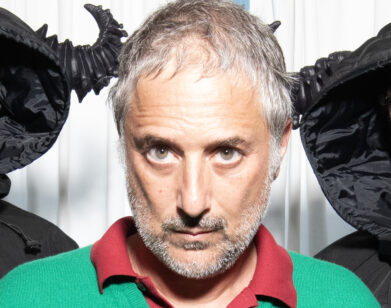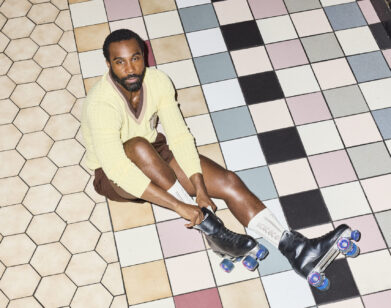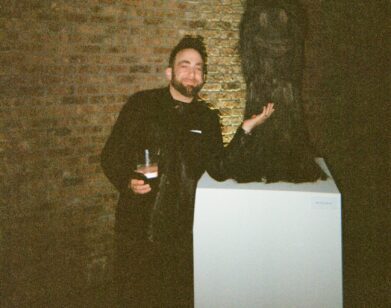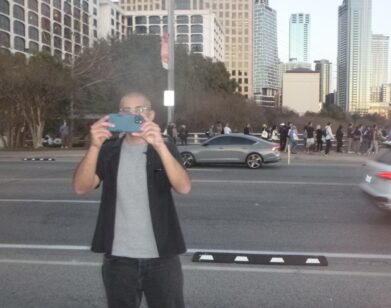Zach Gilford Gives Us Some Answers
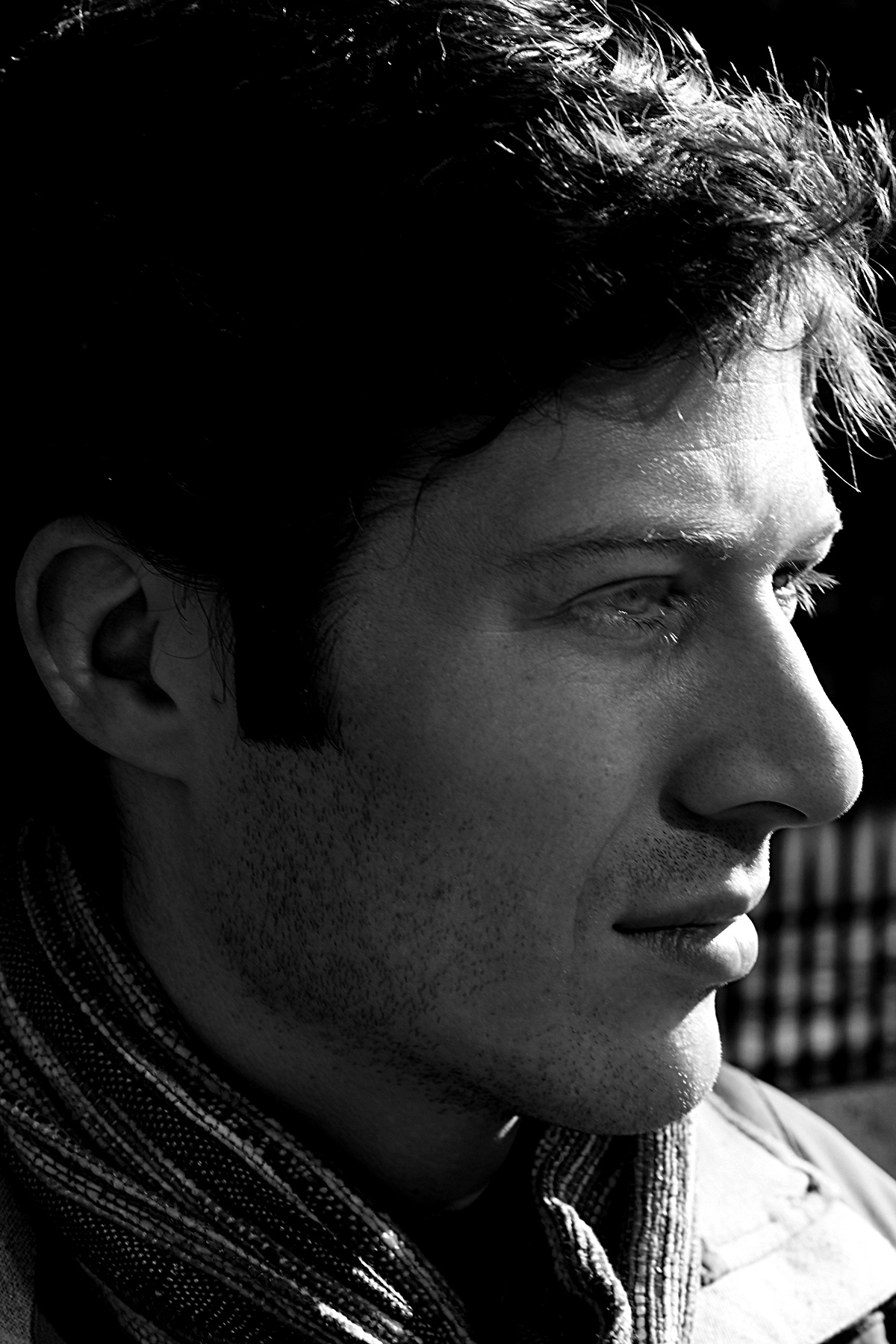
Matt Leutwyler’s new film Answers to Nothing weaves several heartwrenching stories together in a realistic portrayal of the complexity of human beings, as both heroic villains and villainous heroes. The story takes place against the backdrop of a local kidnapping in Los Angeles. One man, Ryan (played by Dane Cook), cheats on his wife as he struggles with his relationship with his absentee, philandering father. An idealistic schoolteacher faces the realization of his long-harbored dreams of heroism. An African American woman claims to “hate black people” in a projection of her self-loathing and negativity. Yet through a chance encounter, with a man named Evan (Zach Gilford), she is inspired to strive for happiness. Evan is shy, awkward and compassionate, and played with just the right combination of sensitivity and humor by the Chicago native best known for his beloved portrayal of the underdog quarterback in Friday Night Lights and for his critically acclaimed role in The River Why. Gilford was in New York this past weekend, and we were able to catch up with him to discuss this new film, Bruce Willis’s influence on his life, and his favorite directorial style.
KATIE FISCHER: What appealed to you about the script for Answers to Nothing when you first read it?
ZACH GILFORD: To be honest, I was excited to do the film before I even read it. I had worked with Matt [Leutwyler, the director] before and was stoked about the opportunity to do it again. I was relieved when I read the script and discovered it was actually good. Given what I knew about him as a director and the rest of the cast, I had a good feeling everything would be executed well. With any script, it can be great on the page and not work in the end. This had a lot going for it.
FISCHER: The filmmakers tactfully restrained from using an easy Hollywood ending and instead, offered the audience a bittersweet sliver of hope—what type of endings do you prefer and why?
GILFORD: I definitely prefer real-life endings. But I do like having an ending. I hate when a movie just sort of ends and is so open-ended you feel like it wasn’t finished. I appreciate leaving things up to the interpretation of the audience and letting them make decisions about where things will go in the future—but the director has to make a decision; otherwise it is sort of a cop-out.
FISCHER: Several plotlines were woven into Answers to Nothing. After seeing it all come together, how do you feel your part contributes to the message of the movie as a whole?
GILFORD: Sadly, I haven’t been able to see the movie yet, so I have no idea how it is all brought together in the end.
FISCHER: In the movie you play a shy, slightly awkward person who is dating an African-American girl who claims to “hate black people”—was it hard for you to figure out how your character was going to empathize with her?
GILFORD: Again, I think this was all pretty easy due to the script. The characters discuss and laugh about the oddity of this self-hating racism. Given the characters and their arcs, I thought this was a pretty easy thing to go with.
FISCHER: Do you identify with any of your character’s personality traits?
GILFORD: There is a little bit of me in every part I do… I’m not really good enough to completely construct an all-new character. But I think I can identify with the romantic side of this character.
FISCHER: You worked with director Matthew Leutwyler on The River Why—how was working with him for the second time?
GILFORD: Working with Matt a second time was awesome and easy. We have a shorthand, which makes work fast and easy and allows for a lot of fun and joking around. I hope I get a third chance to work with him.
FISCHER: What appeals to you about the stories he chooses to tell?
GILFORD: Even though River Why and Answers to Nothing were completely different stories, they were both very rooted in reality, and that is something I am always drawn to. Both are full of authentic characters with problems that we all face.
FISCHER: After starring in successful television series and independent films, how does each format satisfy you artistically?
GILFORD: I really have no preference between TV and film. I think that each individual project is its own thing and has a very different style. I have worked on big movies and small movies and network TV. I have had amazing experiences in each environment, and awful [ones]—more good than bad, though.
FISCHER: How did you know that you wanted to be an actor? Were there early indications to you that you were better at it than anything else in your life?
GILFORD: I wanted to be an actor when I saw the movie Die Hard. I saw Bruce Willis shooting guns and blowing stuff up, and I thought, “I wanna do that.” It really had nothing to do with acting, I just wanted a job that allowed me to do fun, bigger-than-life stuff.
FISCHER: Looking at your body of work, is there a side of you that you feel you haven’t had a chance to show?
GILFORD: I think I need a chance to show my bad side. I really wanna be a villain.
FISCHER: What was the biggest surprise you found from being an actor in college to an actor in the business?
GILFORD: Hollywood is like high school with more money, so no real surprises.
FISCHER: Now that you have worked in a fair amount of projects, is there a directing style that you find more conducive to your process? How do you skate the line of what you believe to be the core of character vs. the opinion of a character a producer or director might have?
GILFORD: The best directing style is the one that lets me do whatever I want. Seriously though, I like to be challenged and I like to collaborate. I love finding the medium between what I think and what a director does. I hate when a director uses the “my way or the highway” approach. But it also sucks when they tell you everything you do is great and offer no input. It’s a fine line a director has to walk. It is a hard job.
ANSWERS TO NOTHING IS OUT NOW IN LIMITED RELEASE.


